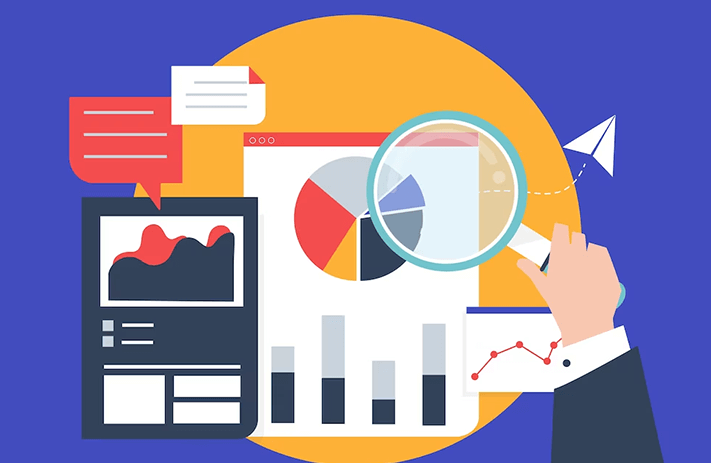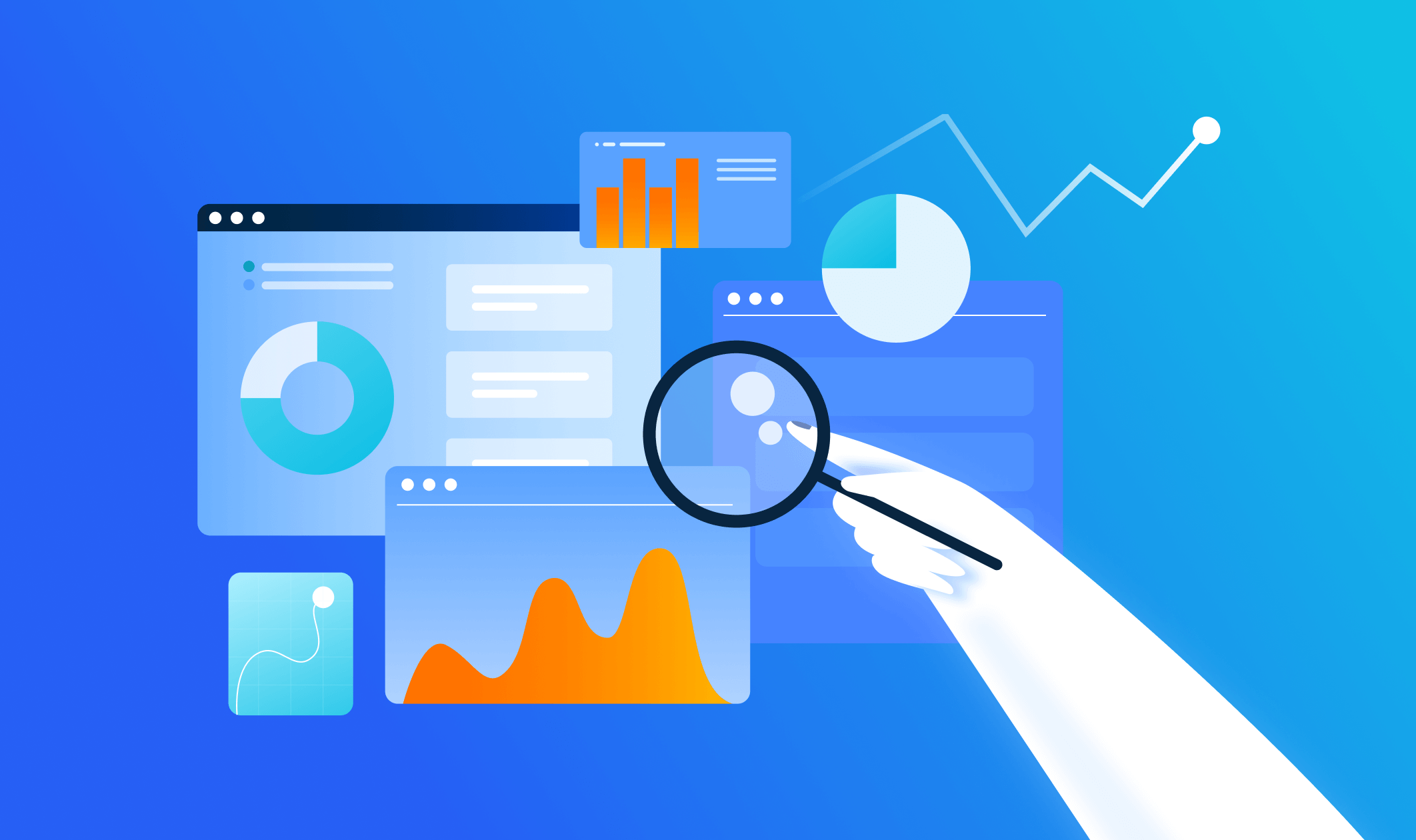In today’s digital age, marketing research plays a crucial role in understanding consumer behavior, identifying market trends, and making informed business decisions. With the vast amount of data available, companies need to leverage advanced tools and technologies to extract meaningful insights efficiently. This is where marketing research software comes into play, empowering businesses to unlock the potential of data and drive their success. In this article, we will explore the significance of marketing research software and how it is revolutionizing data-driven decision-making.
The Evolution of Marketing Research Software

With advancements in technology, marketing research software has emerged as a game-changer in the industry. These software solutions streamline the research process, automate data collection, and provide powerful analytics tools for quick and accurate decision-making. They eliminate the need for manual data entry, enabling researchers to focus on data analysis and interpretation.
Key Features and Benefits of Marketing Research Software
Market research software offers a wide range of features and benefits that enhance the efficiency and effectiveness of the research process. Some key features include:
Data Collection and Integration
Marketing research software simplifies data collection by offering various methods such as online surveys, social media monitoring, and customer feedback analysis. It enables researchers to gather data from multiple sources and integrate them into a unified platform for comprehensive analysis.
Advanced Analytics and Visualization
These software solutions provide advanced analytics tools, including data mining, statistical analysis, and predictive modeling. They help in identifying patterns, trends, and correlations within the data, enabling businesses to make data-driven decisions. Interactive visualizations further enhance the understanding of complex data sets.
Automation and Time Efficiency
By automating repetitive tasks such as data entry and report generation, marketing research software saves valuable time and improves overall productivity. Researchers can focus on higher-level analysis and strategic planning, leading to faster insights and better decision-making.
Collaboration and Reporting
Marketing research software facilitates collaboration among team members by allowing real-time sharing of research findings, insights, and reports. It provides customizable reporting features, enabling researchers to present data in a visually appealing and easily understandable format.
The benefits of marketing research software include:
- Increased accuracy and reliability of research findings.
- Improved speed and efficiency in data collection and analysis.
- Enhanced decision-making based on data-driven insights.
- Cost savings by eliminating manual processes and reducing errors.
- Competitive advantage through a better understanding of market trends and consumer behavior.
Choosing the Right Marketing Research Software

When selecting a marketing research tool, it is essential to consider the specific needs and goals of your business. Here are some factors to consider:
- Scalability: Ensure that the software can handle your current and future research requirements as your business grows.
- User-Friendliness: Look for software with an intuitive interface and easy-to-use features to maximize user adoption and productivity.
- Integration Capabilities: Consider whether the software integrates seamlessly with other tools and systems you use, such as CRM or marketing automation platforms.
- Customization Options: Evaluate the flexibility of the software to adapt to your unique research needs and workflows.
- Security and Compliance: Ensure that the software adheres to data security standards and compliance regulations, especially when handling sensitive customer information.
Implementation and Integration of Market Research Software
The successful implementation of market research software requires careful planning and execution. Here are some steps to consider:
- Define Objectives: Clearly define your research objectives and the specific insights you want to gain from the software.
- Data Preparation: Cleanse and organize your existing data to ensure its accuracy and quality before integrating it into the software.
- User Training: Provide comprehensive training to users to familiarize them with the software’s features and functionalities.
- Integration with Existing Systems: Integrate the marketing research software with other relevant systems to streamline data flow and avoid duplication.
- Ongoing Support and Maintenance: Establish a support system to address any technical issues or questions that arise during the software’s usage.
Overcoming Challenges
While marketing research tool offers significant advantages, it also presents certain challenges that organizations need to address. Some common challenges include:
- Data Quality and Accuracy: Ensuring the accuracy and reliability of the collected data is crucial for obtaining meaningful insights.
- Data Privacy and Security: Safeguarding customer data and complying with privacy regulations is of utmost importance.
- Skill Gap: Organizations may face challenges in finding skilled professionals who can effectively utilize the software’s features.
- Change Management: Implementing new software requires change management strategies to ensure smooth adoption and integration within the organization.
Case Study: Revolutionizing Data-Driven Decision-Making Through Marketing Research Software
With the fast changes in the market and the customer’s opinions and preferences, businesses are seeking for better understanding. To be able to know the changes in the customer’s preferences and habits. And knowing the new market trends that appear, and how the market and audiences are reacting to them. To be able to match the customer’s different needs and stay on top. In this case, study you will see how a global company in the consumer goods industry leveraged the market research software, for a better understanding of the market and the customers.
The Challenge: Navigating Data Overload
With the traditional method that the company was following for data collecting and analysis, it was facing several challenges. With the vast amount of data from different sources including surveys, social media conversations, and reviews. With was time-consuming to collect all these data and analyze them. In addition to the high cost of the process, and the several errors that it included.
- Slow data collection: the data was collected manually from different sources. Which was time-consuming and included a lot of human errors.
- Lack of real-time insights: the company was struggling to get real-time insights. Which was limiting its ability to make better and faster decisions.
- Inability to integrate data sources: the disconnected sources of information were challenging to collect the insights. To provide an overview of the company its customers and new market trends.
- Inefficiency in collaboration: the different teams weren’t able to collaborate effectively. As they didn’t have a channel to share insights and research results.
Solution Implementation: Adopting Marketing Research Software
To address these challenges the company decided to implement a marketing research tool “ AIM Research”. To be able to collect, analyze, and provide detailed reports about the different market research aspects. Through providing some main key features that ease the process of the market research.
- Automated Data Collection: the software of the tool was able to streamline the data-collecting process. To be able to gather the data from various sources including surveys, customer feedback forms, and social media monitoring. To be able to gather insights form all the sources to understand the customer’s sentiment and feedback.
- Advanced Analytics and Reporting: the software provided advanced analytics model to enable the business to understand the insights deeper. Through tracking the customer’s different behaviors and analyzing them. With the real-time dashboard which enable the company to take faster actions according to the real time insights.
- Integration with Other Systems: by integrating the tool with the current company CRM, the research tool provided more unified views. To know the customer’s behaviors, to understand how the customer’s preferences and needs translate into purchasing.
- Collaboration Tools: the software enables the different teams to share data and insights, and to work together. Through one centralized platform, which eases the process of making discussions between the different teams, work aligns in real-time.
- Visualization Tools: the interactive data visualization tool provided a user-friendly visual. To enable the company to read complex data better and faster, for taking better decisions.
Future Trends
The future of marketing research software looks promising, with advancements in artificial intelligence (AI), machine learning (ML), and natural language processing (NLP). These technologies will enable more sophisticated data analysis, predictive modeling, and real-time insights. Additionally, cloud-based solutions will enhance accessibility and collaboration, allowing businesses to harness the power of marketing research on a global scale.
Conclusion
In conclusion, market research software is a powerful tool that can revolutionize your data-driven decision-making and drive business growth. By leveraging advanced analytics, streamlined data collection, and intuitive collaboration features, you can gain valuable insights into customer behavior, market trends, and competitive landscapes.
To experience the benefits of marketing research software firsthand, we invite you to request a demo from AIM Technologies. Our industry-leading software is designed to meet the unique needs of businesses like yours, providing you with the tools and capabilities to make informed decisions and stay ahead of the competition.
FAQs
How can marketing research software benefit small businesses?
- Marketing research software offers small businesses access to powerful data analysis tools that were previously only available to larger enterprises. It enables them to gather insights into customer preferences, market trends, and competitive landscapes, empowering them to make informed decisions and compete effectively in the market.
Can marketing research software integrate with other business systems?
- Yes, marketing research software can integrate with other systems such as CRM, marketing automation, and data visualization tools. The integration allows for seamless data flow and provides a comprehensive view of customer interactions, enabling businesses to derive deeper insights and streamline their operations.
Is marketing research software suitable for qualitative research?
- Yes, marketing research software can support both qualitative and quantitative research. It offers features such as online surveys, sentiment analysis, and text mining, which facilitate the analysis of qualitative data and extract meaningful insights.
How can market research software improve decision-making?
- Market research software provides businesses with accurate and timely insights based on data analysis. By making data-driven decisions, businesses can minimize risks, identify new opportunities, and optimize their marketing strategies for maximum effectiveness.
Where can I get access to market research software?
- You can get access to market research software from reputable software vendors and service providers. It is essential to evaluate your specific needs and choose a software solution that aligns with your research goals and budget.




